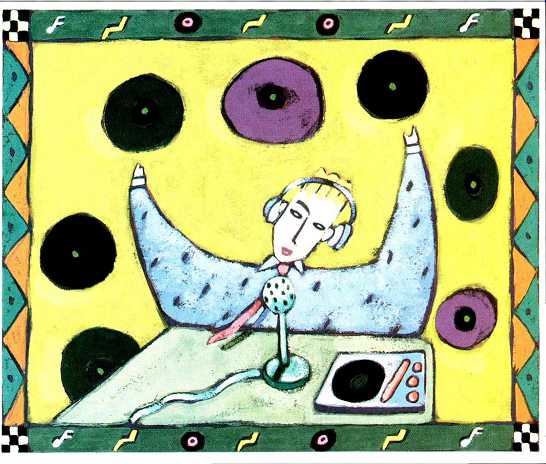FOR WANT OF A SPLICE

Was it some psychic impulse that led me to write my most recent segment of audio-biography about that chancy period of ultra-change in our media, the years immediately after World War II? My March 1987 column took me right up to the threshold of consumer hi-fi and the first wide usage of the term audio, as embodied in this magazine's name and that of the then-new Audio Engineering Society. And so I was all set for Audio's 40th anniversary, a fitting time, I thought, to recount the beginning of my involvement with the magazine. No matter that, when the anniversary came, I forgot.
That was a tough period for all of us.
Even the new colossus, TV, was momentarily floundering just as precariously as FM radio and, indeed, AM itself. I survived those postwar years intact--but barely.
In 1947, after quitting old-band FM forever, I moved into an upper room in an unused stone church on Manhattan's Park Avenue, barely heated and totally shabby, for an economical rent al of $9 per month. That helped. And I was able to transfer my FM radio pro gram to "public radio," then known in New York as the Municipal Broadcasting System. That helped a lot too more than you could imagine. My new AM program, sacrificing all the benefits of high-quality FM sound for the moment, brought me, of course, a much vaster audience than FM. Per haps it was 100 times larger, maybe 1,000 times--who knows? A lot, let me tell you, and soon I began, in that great population, to be heard. Even without a national network.
There was, of course, no audio or video tape in those years. I forget when Bing Crosby inaugurated his taped radio show, via Ampex, but certainly very few lesser or greater pro grams were recorded on anything but the celebrated and usually dreadful "air checks." So I did my show live, with records, all at 78 rpm and all but a few on very breakable shellac. After one disastrous try at sonic trickery using local station personnel, I saw the handwriting on the station wall. (It said, "We ride gain and watch seconds. Period.") So I brought in my own highly intelligent but unpaid assistants to juggle the discs in jockey fashion, cross-fading the most unthinkable combinations, playing two records at once, and so on. It was fun, and disasters often happened. Then again, there were also miracles of perfect timing, after endless rehearsing-so perfect that the changeover from one disc to another was largely undetectable, and I would have to comment in words as to what had just happened.
These assistants were lucky finds, as mentioned in an earlier account.
John McClure went on to become a CBS Records big shot and then re cording assistant to Leonard Bern stein. Jac Holzman founded Elektra, and later Nonesuch, while still doing tricks for me on good old WNYC. He was 19 when we started to work together.
The upshot of this, to make the story short at this point, was an audience on AM (later AM-FM simultaneous mono) that included an audio specialist and magazine editor by the name of C. G.
McProud, who at the time was helping to launch Audio Engineering, the fore bear of this magazine. I came on every Sunday at 1 p.m., and McProud was there in his Greenwich Village apartment, with his wife, Betty, and a brace of Siamese cats. While the cats leapt and yowled and did their Siamese tricks, Mac and Betty listened to Canby orating about music with a batch of audio tricks.
This was early in 1947, probably just before Audio Engineering, Vol. 1, No. 1, went to press. I was to make the second issue. I do not remember how McProud contacted me, but in any case, I found myself very shortly in his apartment, with Betty managing the cats while we gents talked.
No-I was not hired as an audio engineer! Ever so simply, I wasn't one.
What McProud wanted was a column of classical record reviews, which he figured might take on at least a bit of an audio flavor, thanks to my already extensive experience in the working end of reproduced music. He may also have known of my record department in The Saturday Review; it was done in tabular form, with sections not only for the musical performance but for the engineering as well. I must have been one of the first to venture into such territory.
McProud was an indefatigable worker, but he also had a very, very strong fondness for all forms of amiable relaxation. I had splendid times in his apartment home and over lunch with him at [...]
(by: EDWARD TATNALL CANBY; adapted from Audio magazine, Sept. 1987)
= = = =